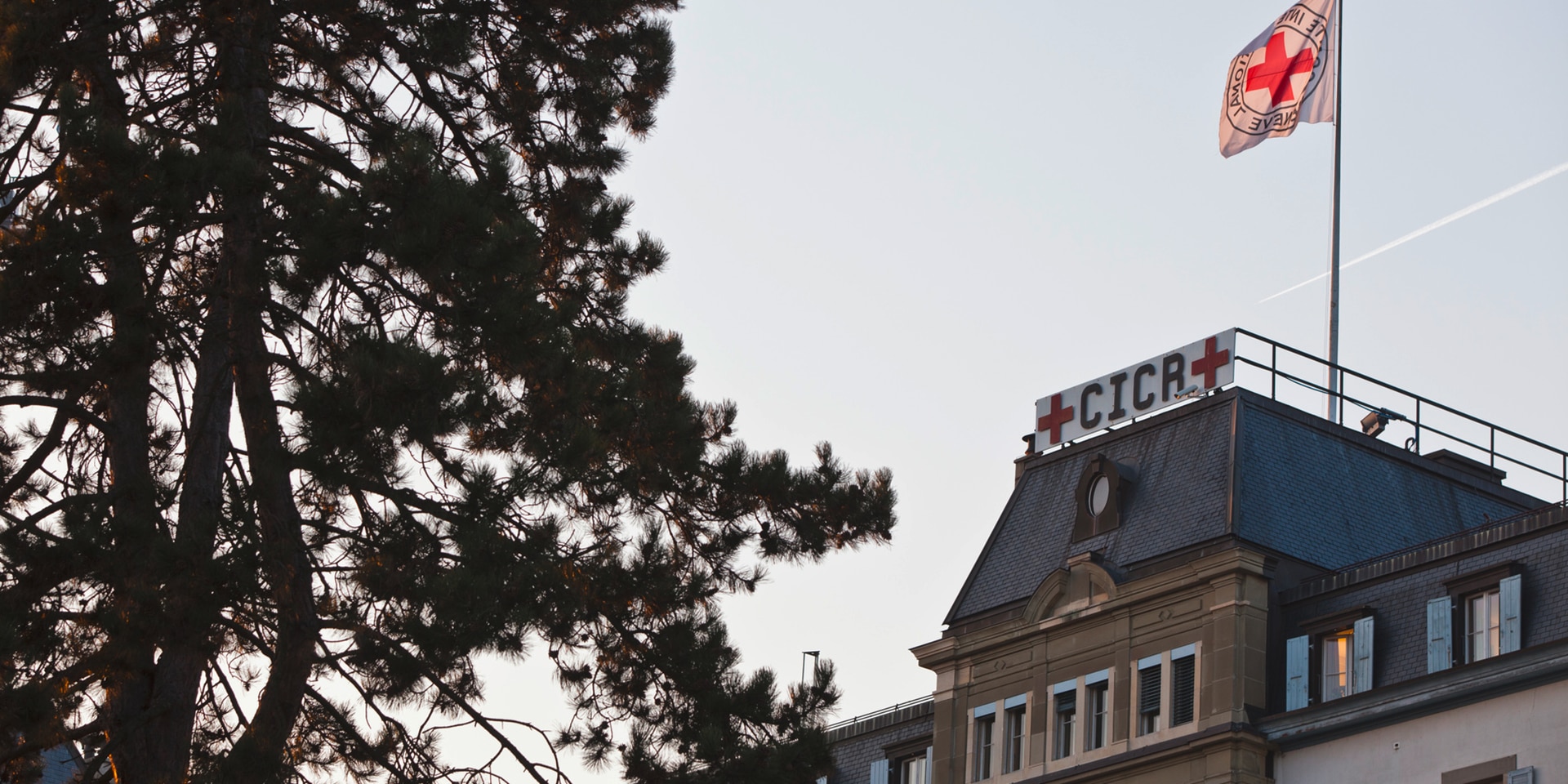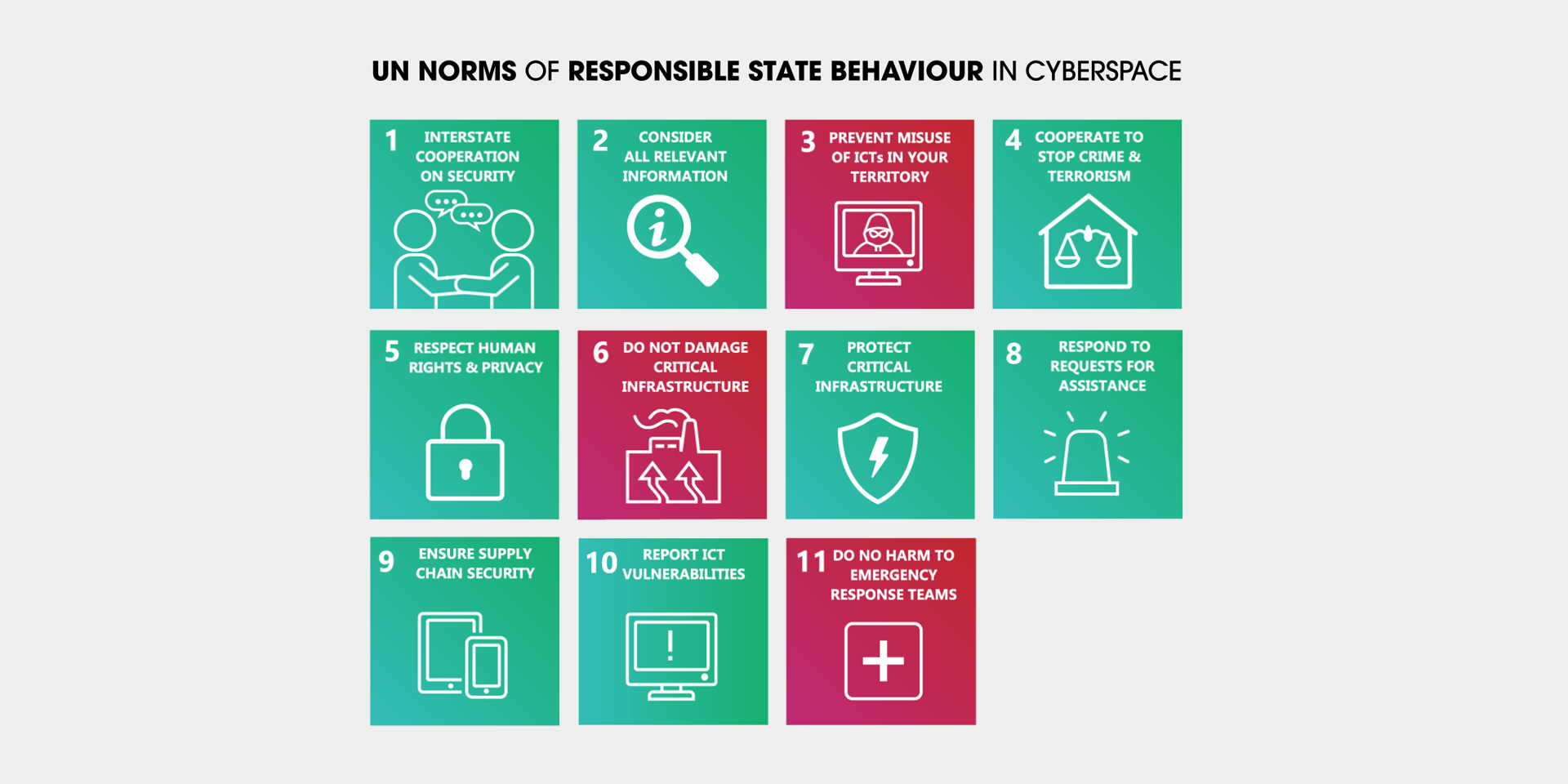Finding missing people and bringing them home strengthens society and builds peace
When missing people come home, this eases the burden on their families and stabilises society – an important prerequisite for future peace. On the occasion of the 150th anniversary of the Red Cross Central Tracing Agency, Switzerland pledges to continue supporting it.
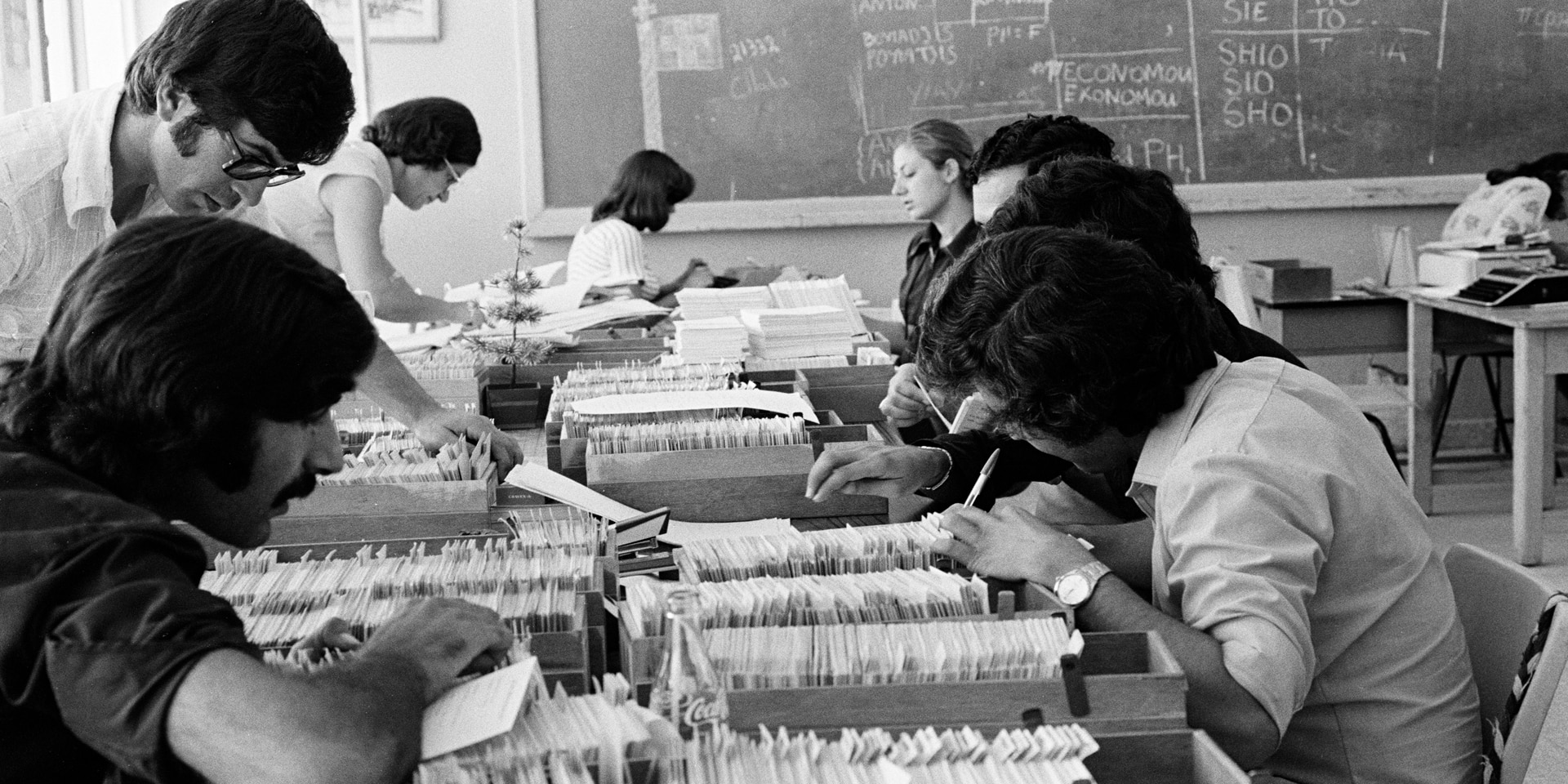
The intensive activities of the Nicosia offices of the Central Tracing Agency (CTA) in 1974, highly focused on finding people gone missing during the war. © ICRC, Max Vaterlaus
The battlefield after a fierce fight. An abdominal wound, bleeding profusely. The tear-stained look of a very young dying man meets that of an unwounded man. The latter one takes pity on the former; the sip of water given does him good. He has just enough strength left for one final request; death then comes and Dunant goes, taking with him an address – 3 Rue d'Alger, Lyon. The parents' address. Their only son – he volunteered to serve in the war – will never come home.
The Central Tracing Agency (CTA) emerges, expanding the work of the ICRC
The scene on the battlefield near Solferino touched Henry Dunant profoundly. After about ten years, the seed sown in his heart bore fruit. The businessman from Geneva founded the International Committee of the Red Cross (ICRC) and several tracing agencies that commenced their activities in wartime as part of the ICRC. On the one hand, the ICRC improved the care and protection of sick and injured soldiers. On the other, from 1870, the Geneva-based international organisation also helped people stripped of their freedom, displaced and separated from their families during war. The various agencies, initially operating separately, were later merged, giving rise to the CTA.
Interview with Caroline Douilliez-Sabouba, head of the Missing Persons Project, International Committee of the Red Cross
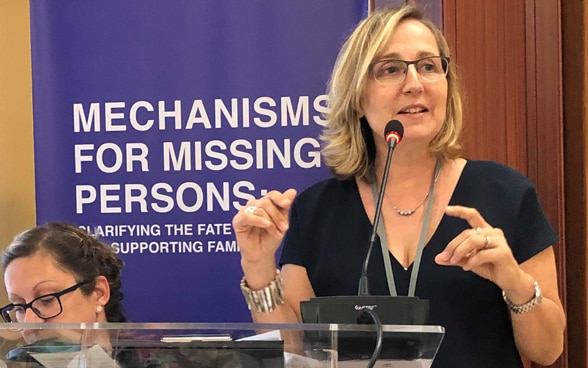
What goals are you pursuing at the CTA?
The Central Tracing Agency (CTA) is one of the ICRC’s oldest institutions enshrined in the Geneva Conventions. Founded as the Basel Agency in 1870, the CTA is today at the heart of the ICRC’s efforts around the globe to protect and restore family links, to search for and identify missing persons, to protect the dignity of the dead, and to ensure that the needs of missing people’s families are addressed.
What are your responsibilities as head of the Missing Persons Project at the Central Tracing Agency?
I am leading the Missing Persons Project. This is a four-year project launched in 2018 to bring together families and practitioners to collectively improve the response around the world.
What projects are you carrying out in conjunction with Switzerland?
Switzerland has been the main donor supporting the Missing Persons Project since its launch. It is also supporting part of the larger Transformation Programme of the CTA.
The Agency is strengthening its foundations and developing new ways to address the needs of missing persons and their families, including through technological innovation. In particular, we are exploring how to become a leading international mechanism for storing, standardising, accessing and analysing data linked to the search for missing people and the identification of human remains. Switzerland is particularly involved in this objective through a feasibility study that started this year.
What influence does Switzerland have on your work?
Switzerland has been a huge support – not only through the funding that was of course essential for carrying out our Missing Persons Project. It has also reflected with us on how to take this project forward, helping us test ideas, providing advice and pushing us to reach out to States and other stakeholders and to find the right approach to engage them. Thanks to Swiss support, we feel confident that we are going in the right direction.
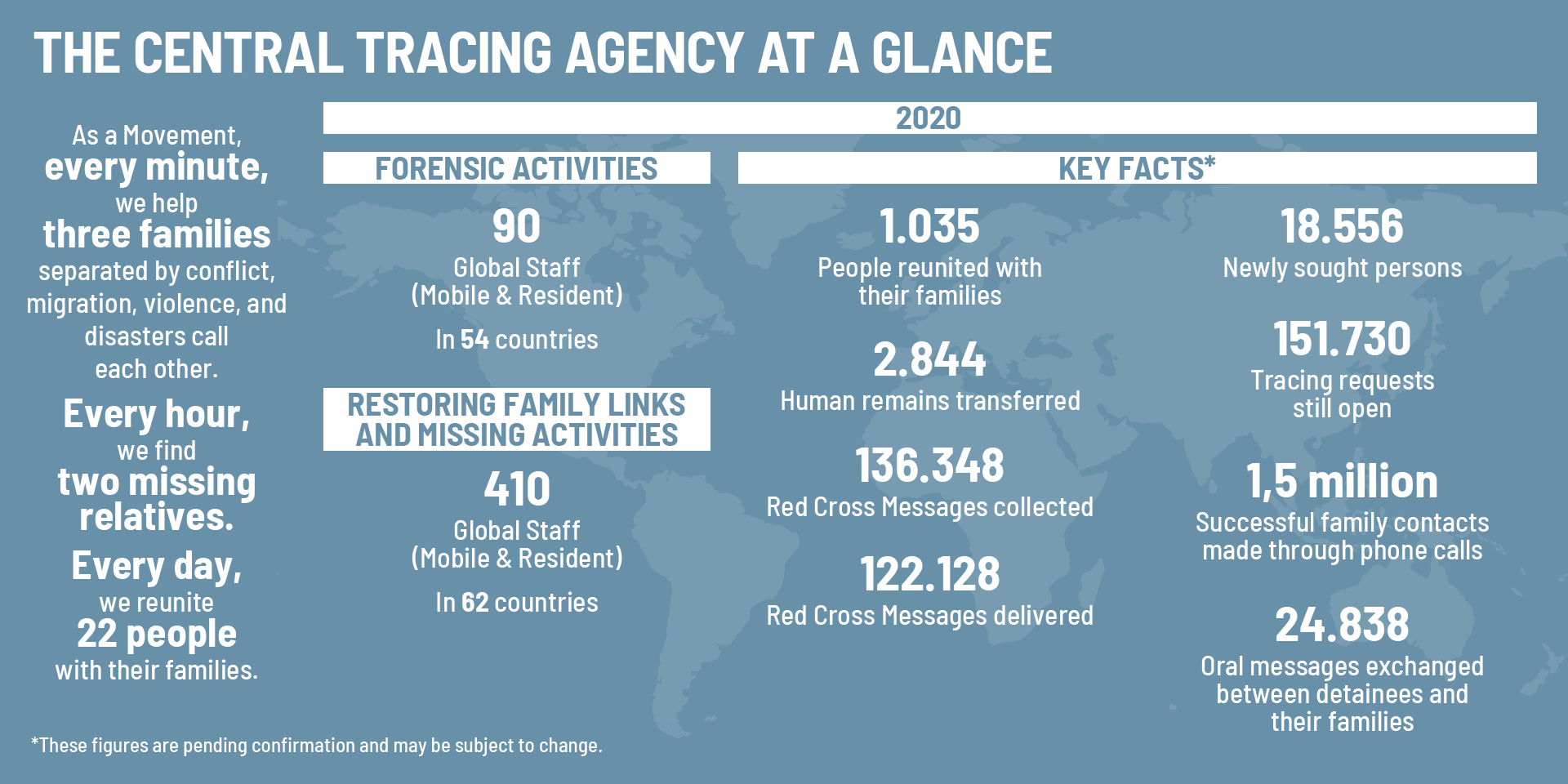
Unique contribution of a Swiss citizen to modern humanitarian work
Federal Councillor Ignazio Cassis and State Secretary Livia Leu participated in the online event celebrating the 150th anniversary of the CTA virtually and in person, respectively. With interviews, discussions and images, the celebration looked back at the multifaceted history and innovative methods of the CTA.
Online event celebrating the 150th anniversary of the CTA
In his video interview during the event, Mr Cassis discussed how Henry Dunant made "a unique contribution to modern humanitarian work" with his humane act on the battlefield of Solferino. Mr Cassis then explained that "the logical consequence of this simple humane act" was the founding of the Basel Agency, the work of the temporary agencies for prisoners of war and civilians during the world wars and, finally, the CTA.
The key role of volunteers in Geneva and around the world
The extraordinary dedication, creativity and tireless work of hundreds of staff members and volunteers – in Geneva and around the world – have made the CTA what it is today: a successful global operation.
A surge of dedicated volunteers joined the agency. Index cards were written, lined up, sorted and filed. Long-awaited letters reached the families of the missing. This remarkable model – the 'evening staff' – saw volunteers all over Switzerland working every night during the Second World War. The Swiss foreign minister stressed that this service to fellow human beings reflects the solidarity deeply rooted in the Swiss population for people in crisis situations. He also noted that it is difficult for societies that neglect missing people to build peace and stability.
The Tracing Service of the Swiss Red Cross is available to anyone living in Switzerland who is looking for a family member or a loved one.
Switzerland's humanitarian tradition
Switzerland's good reputation is based in part on its humanitarian tradition, exemplified by the CTA. "Switzerland shows solidarity by providing impartial assistance in crisis situations, in armed conflicts and during disasters..." (Foreign Policy Strategy 2020–23). Here, the country focuses on people’s needs to guarantee their safety, dignity and rights. It has a tradition of supporting humanitarian organisations and specialised UN organisations. The CTA continues to enjoy broad political, financial and substantive support. Switzerland plays a central role as depositary of the Geneva Conventions.

